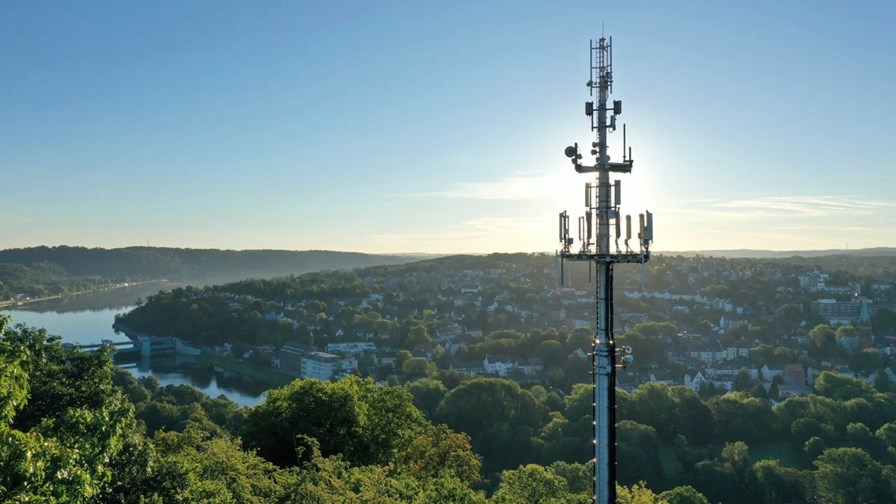
Source: Ericsson
- Telefónica claims to have made significant headway with its carbon reduction efforts
- It is now committing to tighter deadlines for its operational emissions by 2030
- Telia is also touting a sustainability milestone
- And Ericsson has issued its first green bond while its tech starts being used in Germany for energy-efficiency gains
Spanish telco group Telefónica has made significant progress with its environmental sustainability deadlines and is now eyeing massive cuts across its global operational emissions by the end of this decade.
The giant Spanish telco, which has operations across Europe and Latin America, has set itself the ambitious goal to slash its Scope 1 (direct emissions from company-owned and controlled resources) and Scope 2 (indirect emissions from the generation of purchased energy) emissions by 90% by 2030. It has also pledged to cut its Scope 3 (those produced within the value chain) emissions by 56% within the same timeframe.
These ambitions are supported by the telco’s claim that it is already “ahead of schedule”, having achieved an 80% reduction in emissions by 2022, eight years before its initial deadline. “This commitment will allow it to reach net zero emissions by 2040, including its value chain,” the company noted.
Maya Ormazabal, Telefónica’s director of environment and human rights, emphasised that the telco’s sustainability efforts will be enabled by the company’s Climate Action Plan, as well as through the deployment of “more efficient networks such as fibre and 5G,” the promotion of renewable energy and the reduction of emissions from fuels and refrigerant gases.
In terms of energy usage, the company provided figures suggesting its consumption level in 2022 was down by 7.2% compared with levels in 2015, despite the volume of data traffic running across its networks increasing by a factor of 7.4. It achieved this through the implementation of a number of energy-efficiency projects, which involved turning to renewable sources for more than 80% of its global electricity consumption.
Naturally, Telefónica is not the only telco player actively seeking to become more sustainable. Swedish telco group Telia has just announced that it has received a “platinum rating” from EcoVadis, a business sustainability ratings provider. The operator’s total score was 83 out of 100, placing it among the top 1% of more than 100,000 companies worldwide. It’s worth noting that the recognition was received not only for its environmental efforts, but also for its policies, actions and results in providing sustainable labour and for its human rights, ethics and sustainable procurement.
Telia noted that its previous rating from the company was “gold” in 2021, demonstrating it has made “steady improvements” in prioritising sustainability in its business strategy and key processes. “We look forward to taking the next steps in 2024, with our customers, suppliers and other partners and stakeholders, at a time when there are huge societal challenges and the EU is pushing the whole corporate community to do more to increase the resilience of society and the economy,” said Sara Nordbrand, head of group sustainability at Telia.
Pan-European operator Colt also announced recently that it had been awarded the EcoVadis platinum rating.
And a further two developments related to sustainability came from Swedish vendor Ericsson this week. In one move, the company boasted that, following trials, Vodafone Germany has activated the vendor’s energy-efficient radio access network (RAN) technology – specifically Ericsson’s triple-band, tri-sector 5G Radio 6646 that combines the 900, 800 and 700 MHz frequency bands into a single compact radio – in its 5G network on a large scale. According to the vendor, bundling the active technology of different frequency ranges and several radio cells in one unit saves between 32% and 40% of energy per base station, and this will help the telco operate a fast network with less power consumption, especially for premises located in rural areas.
Another test result cited by the vendor demonstrated that energy requirements can be reduced by more than 2,500 kilowatt hours (kWh) per mobile phone site per year.
“For the first time, we are bundling the active antenna technology of different area frequencies in mobile communications. This is good for smartphone users in rural areas and good for our planet. Because with the new technology, we are bringing fast and reliable 5G networks even better to people in rural areas and deep into buildings,” noted Philippe Rogge, CEO of Vodafone Germany. The German unit of Vodafone aims to be carbon-neutral by 2025.
Last but not least, Ericsson has issued its first green bond worth €500m, with the vendor’s CFO, Carl Mellander, stating that the proceeds raised “will support R&D investments in enhanced energy performance in both existing and future solutions.” According to the executive, this will enhance telcos’ competitiveness while enabling “further societal climate action through solutions made possible by mobile connectivity.”
- Yanitsa Boyadzhieva, Deputy Editor, TelecomTV
Email Newsletters
Sign up to receive TelecomTV's top news and videos, plus exclusive subscriber-only content direct to your inbox.




